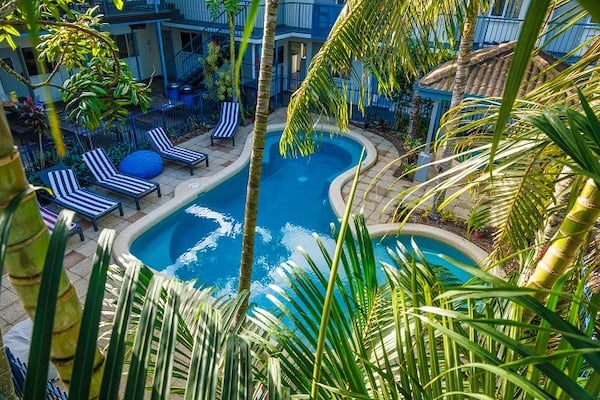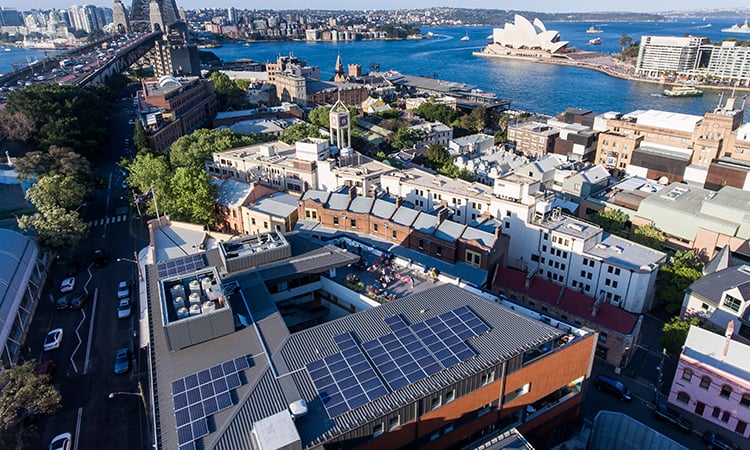How to ethically visit and help protect the Great Barrier Reef
Australia's greatest treasure
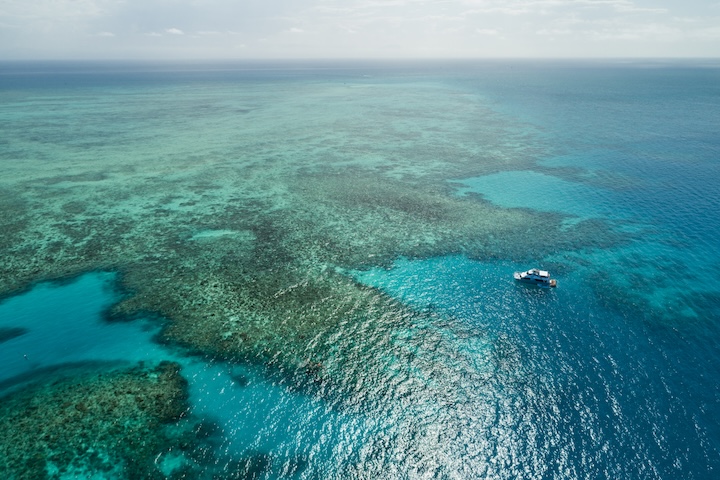
Image: Tourism and Events Queensland
Home to thousands of species of fish, hundreds of different coral varieties and six of the world’s seven marine turtle species, it’s unsurprising that seeing Australia’s famous Great Barrier Reef is one of the most popular things to do when visiting Queensland.
The largest coral reef ecosystem on the globe has long captivated us with its spectacular biodiversity and beauty, but lately it’s been capturing attention for concerning reasons. Australian scientists use aerial surveys and other methods to monitor the health of the reef all year round and according to the Great Barrier Reef Marine Park Authority (GBRMPA), the World Heritage-listed wonder is under serious stress, with prevalent bleaching present on more than 60 percent of surveyed reefs in early 2024.
Unfortunately, the Great Barrier Reef isn’t the only ecosystem under threat – mass bleaching events are impacting reefs all around the world, with scientists identifying rising sea temperatures due to climate change as the main culprit.
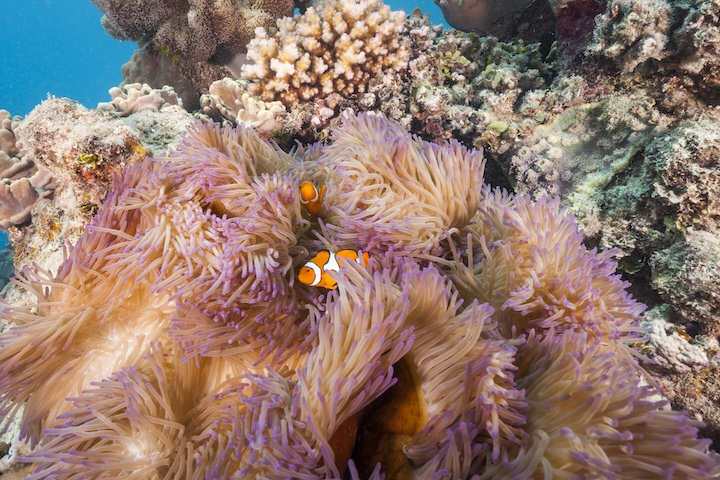
Image: Tourism and Events Queensland
So what does this mean for your visit? Just like when visiting other ecosystems threatened by climate change, it’s important to tread lightly and make careful choices. Yes, some areas have been damaged by heat stress, but with the reef covering an astounding 344,400 square kilometres (including thousands of reefs and hundreds of islands) the good news is that there are still plenty of areas with healthy reefs to visit.
Operators have a plethora of local intel that helps them find the best spots for diving and snorkelling. So if you book a trip to experience this natural wonder, then you’ll be taken to spots where you can see plenty of colourful coral, tropical fish and – if you’re lucky – a sea turtle or two.
Planning a trip to see the reef but not sure about how to minimise your impacts? Read on to learn more about how to make more ethical choices that support the reef’s future.
Choose your tour operator wisely
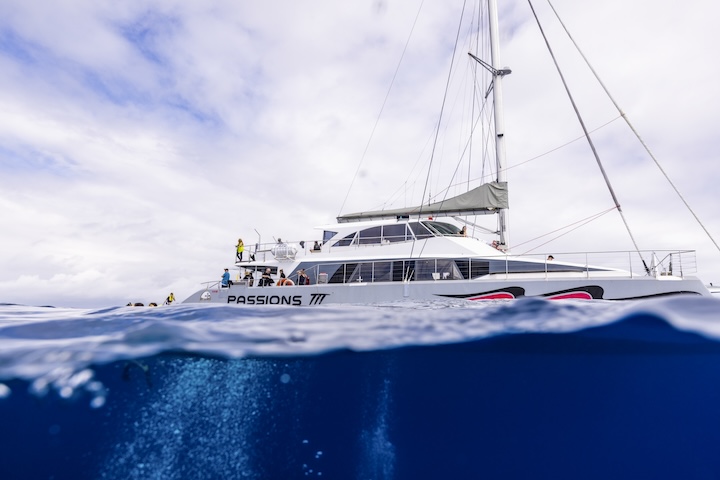
Image: Tourism and Events Queensland
There are plenty of companies taking people out to see the reef, but not all tour operators are created equal. If you’re concerned about your impact on this fragile ecosystem, look for well-established, locally owned operators with genuine eco credentials.
Husband and wife team Perry and Taryn operate two eco-certified boats (Ocean Freedom and Ocean Free) from Cairns. With advanced eco certification and a strong commitment to sustainability, this operator has been recognised as a green travel leader in the industry.
With a long history of running reef cruises, owner-operated Passions of Paradise has been sharing the wonders of the reef with visitors since 1987. This truly local business supports tree planting programs in the Daintree, contributes to the crown-of-thorns starfish population control program, completes reef health surveys and donates a portion of every dive certification to Project AWARE, a global marine conservation organisation.
If you’re visiting the Cape Tribulation area, Ocean Safari is a small company operating morning and afternoon snorkelling trips to Mackay Reef plus educational trips with master reef guides and marine biologists.
Note – you can learn more about what makes a good wildlife operator in YHA's Wildlife Guidelines.
Become a citizen scientist
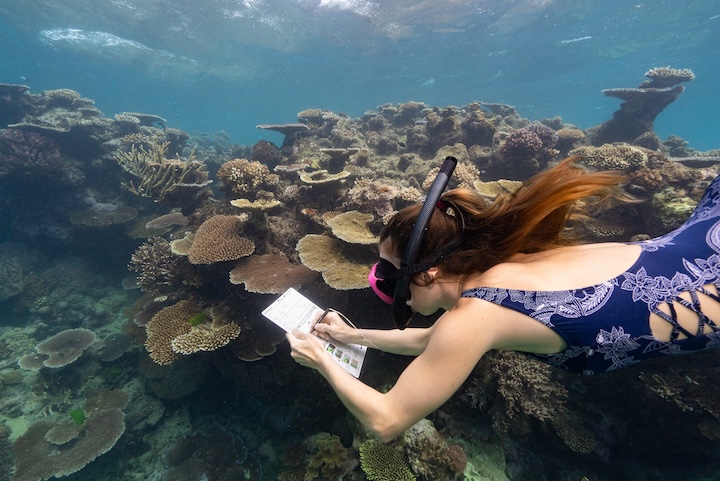
Image: Tourism and Events Queensland
One simple way to have a positive impact while you’re visiting is to contribute to one of the many citizen science projects aiming to improve the health of the reef. All you need is enthusiasm, observational skills and everyday tech items like a smartphone or laptop - no science degree required!
While on your reef getaway you can contribute crucial data to the University of Queensland’s CoralWatch program or use the Eye on the Reef app to record animal sightings and other important reef health indicators. If you’re visiting from October to December, you can also dive in and help the Great Reef Census team with in-water surveys. Got some cool photos or GoPro footage of manta rays while out diving or snorkelling? Help scientists unravel the mysteries of the manta by sharing your images or footage with Project Manta.
Roll up your sleeves
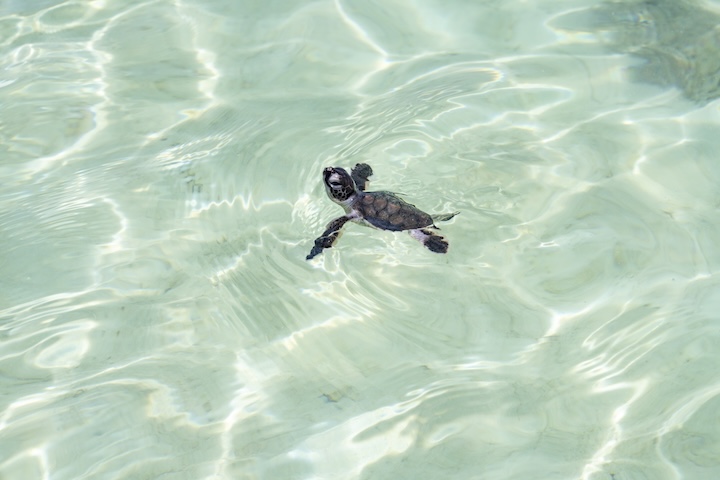
Image: Tourism and Events Queensland
Apart from collecting data for citizen science projects, volunteering is a great way to give back to the beautiful places you visit. If you’re visiting during September, join the local community to help Clean Up Cairns. Every straw, bottle, cup and wrapper you pick up is one less piece of plastic that will be washed into the sea during the impending wet season. Of course, you can always collect litter from beaches or coastal areas any day during your stay. If you’re a wildlife lover, the Cairns Turtle Rehabilitation Centre on Fitzroy Island also has volunteer opportunities available via prior arrangement. Can’t volunteer? Just visiting the island’s rehab centre helps to fund turtle recovery programs.
Support the cause
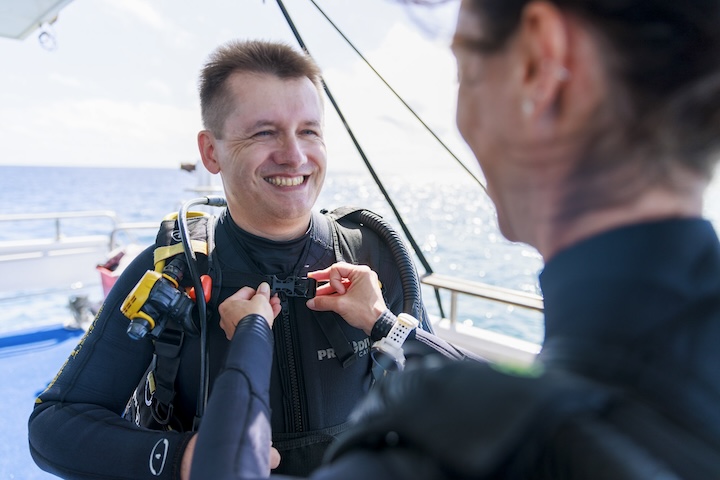
Image: Tourism and Events Queensland
Travel has the power to transform attitudes and open minds. Once you’ve seen the epic beauty of the Great Barrier Reef, you’ll want to do more to protect reefs around the world. Consider donating to marine conservation not-for-profits that support reef restoration and protection, like the Australian Marine Conservation Society. Don’t have much cash to spare? Help out by signing petitions in support of environmental protection or volunteering your time to share your passion for reef protection with others.
Five quick tips to be a reef-friendly traveller
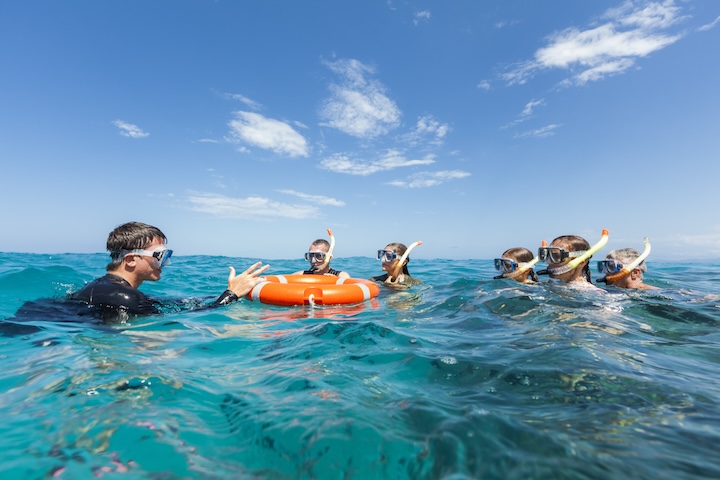
Image: Tourism and Events Queensland
Want to be a good ally to the reef? Follow these five responsible reef practices and you’ll be well on your way to ensuring your visit to the reef is a low-impact one.
Take photos, not souvenirs
Tempted to take a keepsake from the reef to remember your trip when you’re back home? Don’t do it! Pocketing a few shells or snapping off some coral to take home is a big-no-no as you could be removing an animal’s home or – even worse – taking home a living creature. Instead of helping to destroy an ecosystem, take snapshots or GoPro footage as your only souvenir.
Keep your distance
Giving wildlife space is paramount, no matter where you’re travelling. When snorkelling or diving, you’ll need to maintain your distance from all marine life. While it’s exciting to see a sea turtle, dolphin, ray or whale, it’s important that you never touch, block or disturb the marine life you encounter.
Tread lightly (or not at all)
You might be conscious of not touching wildlife, but you’ve got to be equally careful about what your feet are doing while you’re on the reef. Being cautious of where you stand is paramount, as stepping on the reef can damage coral and wildlife. Try to stay buoyant at all times, be aware of currents and avoid getting close to shallow reef areas (so you don’t have to stand up to gain your balance).
Leave no trace
Littering is uncool no matter where you are, but it’s especially awful when in a precious ecosystem like the Great Barrier Reef Marine Park. Can’t find somewhere to dispose of your rubbish? Take it back to your accommodation and throw it away there. Better still, stay one step ahead of the waste game by arming yourself with a reusable steel water bottle, straw and container filled with snacks.
Don’t feed the locals
Tempted to feed the wildlife while visiting the Great Barrier Reef? Australia’s wild animals are perfectly capable of feeding themselves and don’t need human food like peanuts, pretzels or bread (which can cause harm to many species). Fish, dolphins, whales and marine birds don’t need to be fed scraps, so refrain from hand-feeding wildlife or throwing food overboard while out on a boat or kayak.
Words: Jo Stewart
For a sustainable stay that puts you close to the reef book YHA Cairns Central.
Book direct and save
By booking direct with MyYHA you'll receive our exclusive discounted rates. Sign up or login to get 10% off at select properties.
Sustainability at YHA
Properties across our network feature energy-efficient and water-saving features like solar panels, rainwater tanks and recycling facilities.
